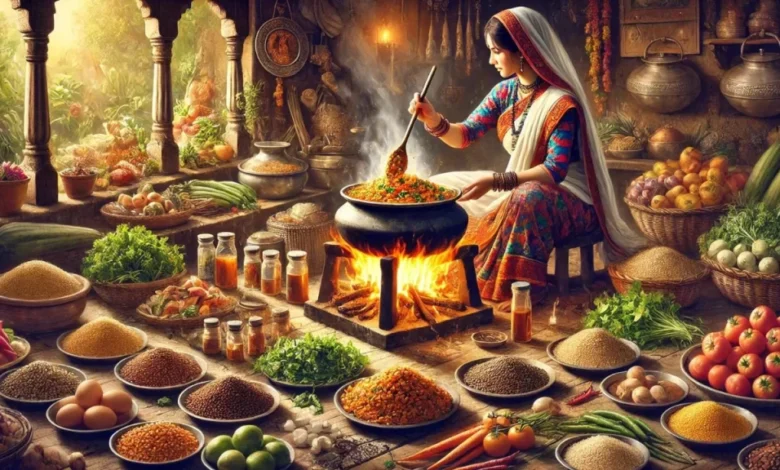The Cultural Significance of Agrawau Traditions and Heritage

Agrawau is more than just a word; it encapsulates a rich tapestry of culture and tradition that has been woven over centuries. This vibrant heritage serves as a reminder of the values, beliefs, and practices that define communities. Each thread tells a story, from its ancient origins to contemporary expressions, showcasing how traditions evolve while remaining deeply rooted in history. As we delve into the cultural significance of Agrawau, you’ll discover not only its historical importance but also how it continues to shape identities today. Join us on this journey through time and tradition as we explore what makes Agrawau truly special.
The History of Agrawau: Origins and Evolution
Agrawau has deep roots that stretch back centuries. Its origins are often traced to ancient communities who used it as a means of expression and connection. Over time, this cultural gem transformed through various influences.
The evolution of Agrawau reflects the broader changes within society. As cultures merged, so did their traditions. This resulted in a rich tapestry woven with stories, rituals, and art forms unique to Agrawau.
Notably, historical events played a role in shaping its practices. From local celebrations to significant milestones, each phase added layers of meaning. Today’s interpretation is vibrant yet respectful of its past.
As generations pass down knowledge and customs, Agrawau continues to thrive amid modernity. The commitment to preserving this heritage ensures that its essence remains intact for future enthusiasts.
Traditional Practices and Customs of Agrawau
The traditional practices and customs of Agrawau are rich in meaning and significance. They reflect the values and beliefs of the community. These customs are often passed down through generations, forming a vital part of cultural identity.
One notable practice is the art of storytelling. Elders share tales that teach moral lessons or recount historical events. This oral tradition strengthens communal bonds while preserving history.
Rituals during agricultural cycles also play a crucial role in Agrawau culture. Farmers perform ceremonies to bless their crops, showing gratitude for nature’s bounty. These rituals foster a sense of unity among participants.
Moreover, music and dance hold an essential place in celebrations. Folk songs resonate with themes from daily life, while vibrant dances showcase artistic expression and collective joy.
Through these traditions, Agrawau continues to thrive as a living testament to its heritage and values.
The Role of Agrawau in Modern Society
Agrawau plays a vital role in modern society, serving as a bridge between past and present. It fosters community spirit by bringing people together through shared traditions and values.
In urban areas, where modernization often overshadows cultural roots, Agrawau acts as a reminder of identity. It encourages younger generations to engage with their heritage actively.
Social gatherings centered around Agrawau facilitate dialogue among diverse groups. This exchange enriches the cultural fabric of contemporary life while promoting tolerance and understanding.
Additionally, the principles embedded within Agrawau inspire various art forms today—music, dance, and literature find new expressions rooted in age-old customs. As these creative outlets flourish, they keep the essence of Agrawau alive for future audiences.
The emphasis on sustainability found in many traditional practices also resonates with current global movements focused on environmental consciousness and community living.
Preservation and Promotion of Agrawau Heritage
Preserving Agrawau heritage is a collective responsibility. Communities play a crucial role in keeping traditions alive. Engaging the younger generation ensures these customs endure.
Workshops and cultural programs are vital for teaching traditional practices. By participating, individuals gain hands-on experience and deeper appreciation. This intergenerational exchange fosters pride in one’s roots.
Social media also serves as an excellent platform for promotion. Sharing stories, images, and videos of Agrawau celebrations can spark interest beyond local borders. Virtual events broaden accessibility to those who may not be able to attend in person.
Partnerships with local governments and organizations enhance preservation efforts significantly. They can provide resources, funding, or venues for cultural events that showcase Agrawau’s legacy effectively.
Connecting with other cultures through dialogue enriches the understanding of Agrawau heritage while highlighting its importance within a global context.
Celebrating Agrawau: Festivals and Rituals
Agrawau is a vibrant tapestry of festivals and rituals that pulse with life. Each celebration reflects the community’s deep-rooted traditions, showcasing colorful attire, lively music, and spirited dances.
One prominent festival associated with Agrawau is marked by joyous gatherings where families come together to honor their ancestors. Rituals often include offerings crafted from local produce, symbolizing gratitude and respect for those who came before.
The festivities are not only about honoring history but also fostering unity among community members. Neighbors share meals and stories under the warm glow of lanterns as laughter fills the air.
Music plays a vital role during these celebrations. Traditional instruments resonate through the streets, inviting everyone to partake in dance—an expression of joy that transcends generations.
Each moment spent celebrating Agrawau strengthens cultural ties while instilling pride in heritage. It’s an experience that enriches lives and preserves traditions for future generations to cherish.
Conclusion: The Importance of Preserving Cultural Traditions like Agrawau
Cultural traditions like Agrawau play a critical role in shaping identities and fostering community bonds. They serve as a bridge between past and present, connecting generations through shared practices and beliefs. The rich customs associated with Agrawaus not only enrich individual lives but also contribute to the collective heritage of society.
Preserving these traditions is essential for several reasons. First, they offer insights into historical narratives that might otherwise be forgotten. Each ritual or festival related to Agrawau tells a story that reflects social values, struggles, and triumphs.
Moreover, maintaining such cultural practices promotes diversity in an increasingly globalized world. It allows communities to celebrate their uniqueness while educating others about their heritage. This exchange fosters mutual respect among different cultures.
Support for Agrawaus can come from various sources—community initiatives, educational programs, or even local governments recognizing its significance. By promoting awareness through workshops or festivals focused on Agrawau’s rituals, we ensure that future generations appreciate this vital aspect of cultural identity.
The importance of preserving traditions like Agrawaus cannot be overstated; they are threads woven into the fabric of our societies that deserve recognition and protection for years to come.




